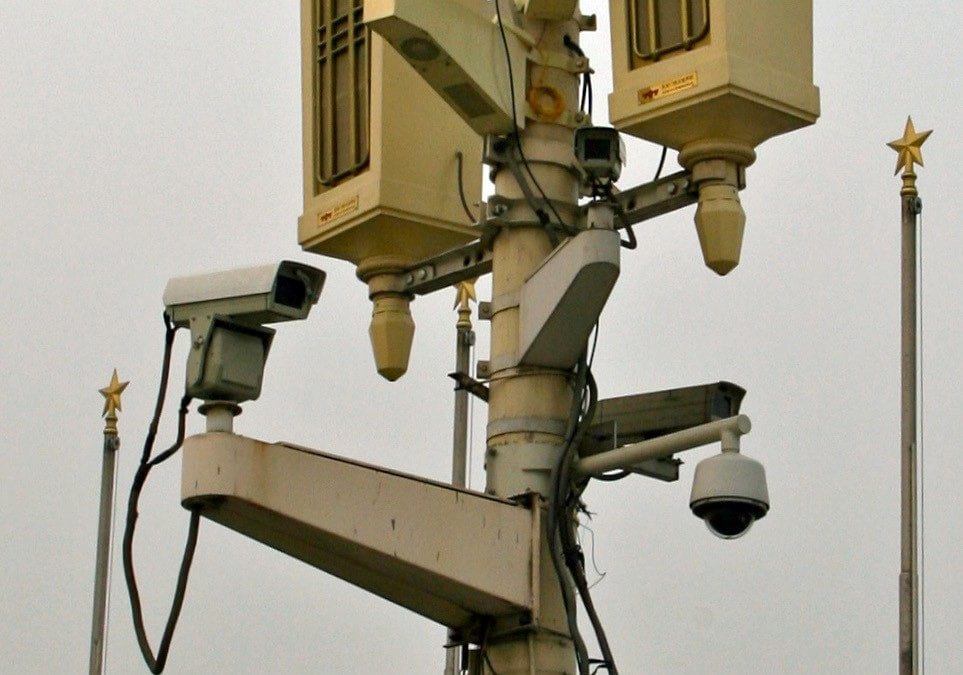After initially downplaying the COVID-19 pandemic and preventing medical professionals from speaking out, the Chinese government reversed course and acted swiftly to stop the virus from spreading. The government’s public health measures included extensive data collection from citizens and high-tech surveillance, as well as more old-fashioned methods like encouraging neighbors to report each other for breaking quarantine. But as effective vaccines and treatments emerge and most countries move towards a new reality of living with the virus, is China likely to give up the higher degree of control it has acquired over its citizens’ lives?
China and Russia are the world’s foremost practitioners of digital authoritarianism, in which authoritarian governments use technology to exert control over their citizens through surveillance and censorship. One example of this phenomenon is the Chinese Great Firewall, China’s comprehensive Internet censorship system, which controls what its netizens see through tools like IP blocking, which prevents China-based users from accessing certain websites; keyword filtering; preventing netizens from using VPNs, which can hide their location; and an army of human and artificial censors. The Great Firewall has been in place since the early 2000s, but the COVID-19 pandemic has given China a new justification for increasing its digital control over citizens.
In February 2020, before most countries imposed restrictions, the Chinese government was working with homegrown technology companies Tencent and Ant Financial, a subsidiary of Alibaba, to roll out personalized QR codes indicating individuals’ levels of risk. Users input their contact information, ID numbers and where they had recently traveled. In return, they received a green, yellow, or red QR code. This Health Code system was eventually used in more than 100 cities.
The QR code system was not China’s only high-tech surveillance endeavor during the pandemic. Sensetime, a Chinese firm, developed an algorithm that could tell when people were not wearing masks in public. Megvii, a software company, created temperature screening technology that would alert the authorities when it detected an abnormally high body temperature. More than 200 million CCTV cameras around the country, some equipped with facial recognition software, provide data to the authorities using programs like SkyNet, a video monitoring system. In rural areas where CCTV cameras’ reach is less pronounced, a surveillance program called Sharp Eyes links cameras in the so-called “Internet of Things,” including smartphones, vehicles, TVs, and appliances, with public surveillance cameras. Sharp Eyes encourages ordinary Chinese people to become enforcers against other people in their communities.
There are already signs that China intends to continue its enhanced surveillance as the pandemic wanes. Different cities across China unveiled apps during the COVID-19 pandemic to collect citizens’ personal health data and determine their risk of spreading the virus. The apps assign health codes to residents, who must have favorable codes to work or obtain shelter. It is difficult to function without downloading the apps. In Hangzhou, for example, a murderer who had been on the run for over two decades turned himself in after finding himself unable to work or find a place to stay without a health code. The Hangzhou app is linked to its residents’ medical records and can be scanned to give a readout of the user’s health.
Although there are few COVID cases in China now, these apps have not gone away. Zhou JIangyong, the Communist Party secretary in Hangzhou, said the city’s app should continue to serve as an “intimate health guardian” that citizens loved too much to give up. Shanghai is trying to revamp its app into a way for residents to access different types of local services. In Xining, the app gives its users coupons to local stores. The Hangzhou app allows residents to schedule hospital visits.
It is not feasible for ordinary citizens to pressure technology companies into behaving more ethically. Chinese law requires technology companies to cooperate with the government in areas involving intelligence and national security. If they refuse to do so, they will likely pay large fines to the government and their license to operate can be revoked. And while some Chinese people spoke out against the draconian measures their government used to fight the pandemic, it was not easy for them to do so. Social media posts criticizing the Communist Party’s management of the pandemic, or even law enforcement’s heavy-handed methods of enforcing quarantine restrictions, were quickly removed.
The Chinese government has a history of justifying invasive measures with flimsy security-based justifications. Reporting by British newspaper The Guardian in 2019 revealed that at the border crossing between Kyrgyzstan and Xinjiang Province, Chinese authorities forced border-crossers to unlock their phones, then secretly installed surveillance applications on them. The applications searched their phones for a variety of content, including terms associated with Islamic terrorism (the Chinese government’s purported justification for security crackdowns in the region). But the applications also searched for more mundane content, including works by the Dalai Lama; music by a Japanese heavy metal band; and an American self-help book.
Unique among the large countries of the world, China doggedly continues to maintain a zero-COVID strategy. Most of the population is vaccinated (albeit with Chinese-made vaccines that are less effective than their Western counterparts), but the government has shown no sign of easing up on its COVID-19 surveillance measures. Aside from its public health uses, China’s repressive zero-COVID strategy acts as a perpetual reason to keep an enhanced surveillance apparatus in place.
Author Biography: Katherine Dolgenos is a Moderator of the International Law Society’s International Law and Policy Brief (ILPB) and a J.D. candidate at the George Washington University Law School. She has a B.A. in Politics from Pomona College.

